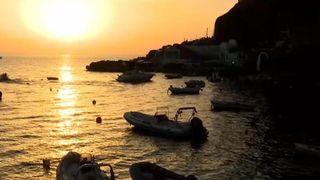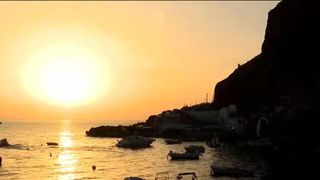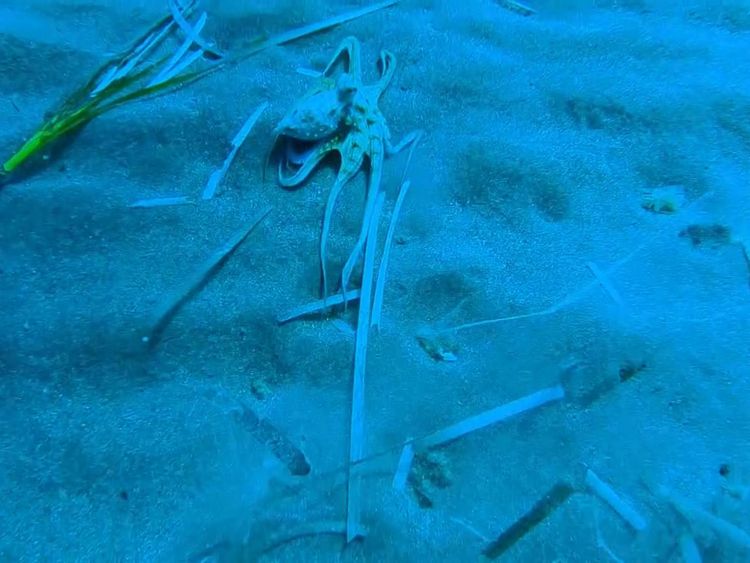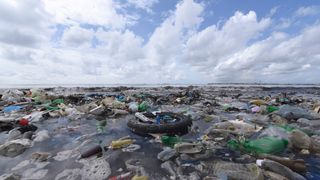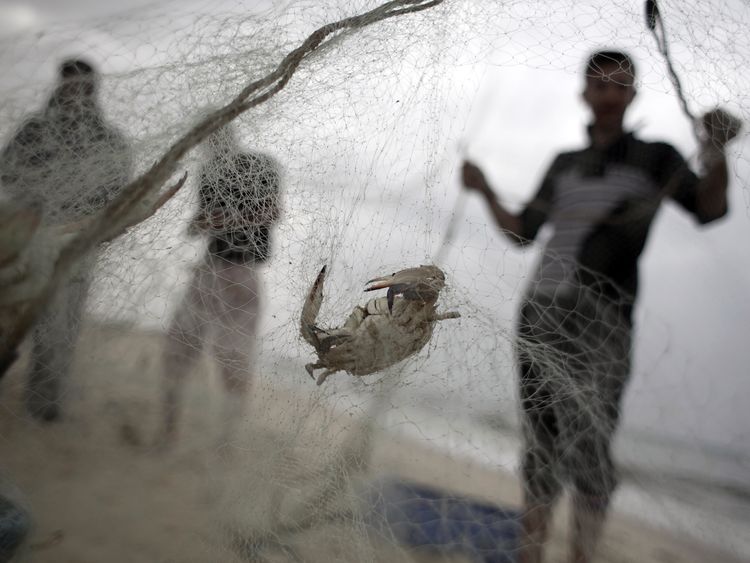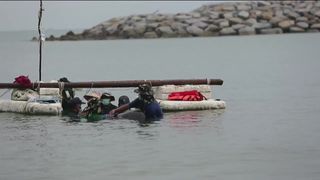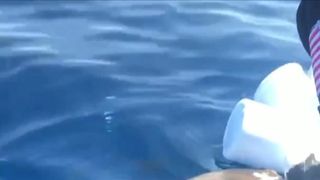Summer holidaymakers are responsible for a sharp spike in the amount of plastic ending up in the Mediterranean Sea, new research shows.
Analysis for the WWF to mark United Nations World Oceans Day reveals there is a 40% increase in marine litter during the tourist season, and almost all of it is plastic.
Sky Ocean Rescue has been campaigning for the reduction or elimination of single-use plastic.
More than 200 million people a year visit the Med, but a combination of litter on the beaches and poor waste management is making the sea one of the most polluted in the world.
It holds 1% of the world’s water, but contains 7% of all microplastic.
:: Sir David’s fears for marine life as plastic waste grows
Tanya Steele, chief executive at WWF, said: “The Mediterranean is a beautiful holiday destination enjoyed by millions of British people each summer, but when we come home with our happy memories we’re leaving behind a toxic legacy of plastic waste.
“The birds, fish, and turtles of the Mediterranean are choking on plastic.
“Our report also shows plastic is ending up in the fish and seafood we eat on holiday.”
:: Big expansion of UK “blue belt” to protect oceans
WWF is appealing to holidaymakers to ditch straws, not to use wet wipes and think twice about buying inflatable pool toys.
The charity is also concerned about abandoned ghost fishing nets that continue to catch and kill marine life. They also release tiny plastic fibres as they degrade.
Sky News joined divers on the Greek island of Santorini who were removing nets and lobster pots that had snagged on rocks.
:: “Ploggers” pick up plastic waste as they run
Teams from the organisations Healthy Seas and Ghost Fishing cut the gear free and lifted it to the surface. One of the nets weighed 200kg – yet even this is just a small dent in the 630,000 tons a year lost at sea.
Veronika Mikos, project co-ordinator for Healthy Seas, said the most lethal of all lost fishing gear is the gill net.
She said: “You can hardly see them, so they are dangerous for animals and dangerous for divers.
“They catch the fish by their gills and that attracts other marine animals like seals and dolphins who want to feed on the fish and they themselves become entangled.”
The nets recovered in Santorini will be recycled into a nylon yarn called Econyl, which is used to make clothing and carpets.
:: Prince Charles calls for action on ‘plastics menace’
Conservationists from the Cousteau Divers organisation supported the ghost net mission.
Pierre-Yves Cousteau, founder of the organisation and son of ocean explorer Jacques, is campaigning for the area to be designated a marine conservation zone – as the UK unveils plans to protect 41 new areas along its coastline.
Overfishing has almost wiped out stocks of commercial species, but he told Sky News that creating a protected “nursery” for fish would lead to an increase in catches for fishermen in surrounding areas.
:: EU proposes bloc-wide ban on single-use plastics
He said: “You can associated the ocean to a sick person or someone who has injured themselves.
“When you injure yourself you rest and that is how you heal.
“Creating a marine protected area does exactly the same thing.
“The fish will come back and within five years we will see an increase in the fish biomass and biodiversity.”
:: Sky’s Ocean Rescue campaign encourages people to reduce their single-use plastics. You can find out more about the campaign and how to get involved at www.skyoceanrescue.com
From – SkyNews



